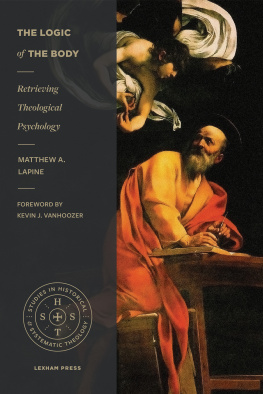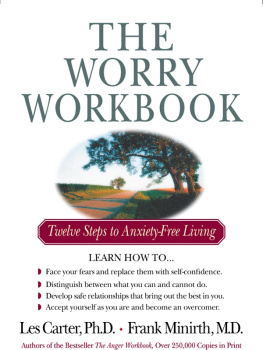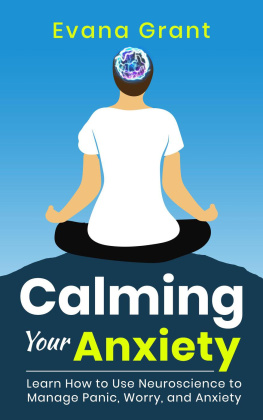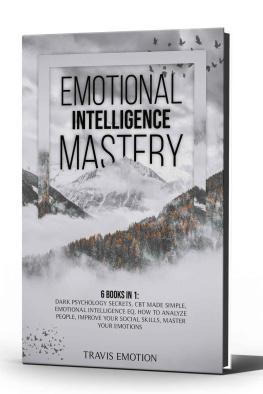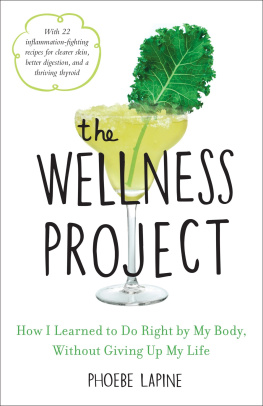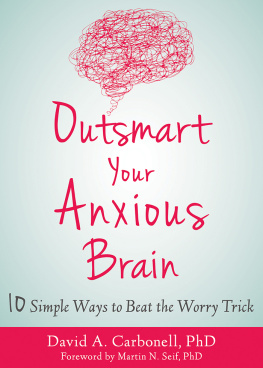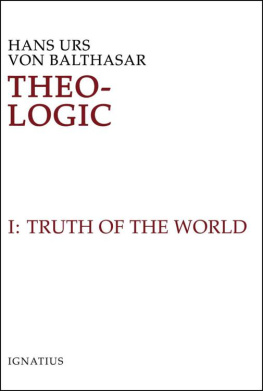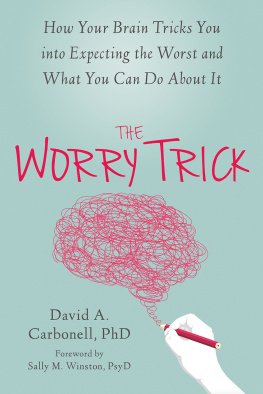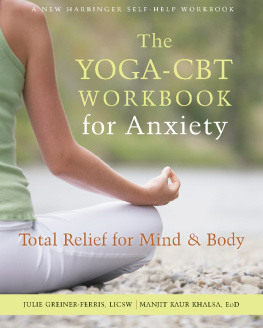The Logic of the Body
Retrieving Theological Psychology
MATTHEW A. LAPINE
STUDIES IN HISTORICAL AND SYSTEMATIC THEOLOGY


The Logic of the Body: Retrieving Theological Psychology
Studies in Historical and Systematic Theology
Copyright 2020 Matthew A. LaPine
Lexham Press, 1313 Commercial St., Bellingham, WA 98225
LexhamPress.com
You may use brief quotations from this resource in presentations, articles, and books. For all other uses, please write Lexham Press for permission. Email us at .
Unless otherwise noted, Scripture quotations are the authors own translation or are from ESVBible (The Holy Bible, English Standard Version), copyright 2001 by Crossway Bibles, a publishing ministry of Good News Publishers. Used by permission. All rights reserved.
Scripture quotations marked ( CSB ) are from the Christian Standard Bible, Copyright 2017 by Holman Bible Publishers. Used by permission. Christian Standard Bible, and CSB are federally registered trademarks of Holman Bible Publishers.
Image on p. is in the public domain.
Print ISBN 9781683594253
Digital ISBN 9781683594260
Library of Congress Number 2020943015
Lexham Editorial: Todd Hains, Lisa Eary, Elizabeth Vince, Abigail Stocker
Cover Design: Owen Craft
To Molly
We share everything, and this book is yours as much as mine
CONTENTS
I have been eagerly anticipating this book. Now that Ive got it, I have to figure out where it goes in my library. Does it belong with my other theology books, or should I add it to my Christian counseling shelf? If with theology: biblical, historical, or systematic? I dont have any books on psychology or counseling with body in their titles.
Truth be told, this book doesnt fit into a clear category. Or perhaps the problem is that my thinking is buttoned down and overly stuffy. Maybe if I just take a peek inside Reformed theologians may have adopted a reductive set of categories for speaking of emotion. Gulp. Im a Reformed theologian, and now I have two problems: how to classify this book, and how to talk about emotions. My heart is pounding, and Im beginning to sweat. Im only in the introduction, and already Im feeling anxious.
Everyday life is filled with experiences (hopefully more meaningful than the one Ive just recounted) that occasion one sort of emotion or another, often disruptive ones. Do not be anxious, says Jesus (Matt 6:31). Yet there are times when, try as we might, we cannot will ourselves into a state of peace. The poet W. H. Auden was the voice of his own generation and of much of the twentieth century when he penned his Pulitzer-prize winning poem The Age of Anxiety . The poem attracted the attention of the composer Leonard Bernstein, who thought it poignantly expressed modern humanitys search for faith. Bernstein composed a symphony based on the poem in 1949. The music was later made into a ballet by the choreographer Jerome Robbins. Think about it, a ballet entitled The Age of Anxiety . This more or less sums up what Matthew LaPines book is all about: bodies in soulful motion expressing, if not the logic, then the lyricism of negative human emotion.
Auden wrote his poem after the Second World War. It was indeed an age of anxiety. The world had just suffered the trauma of D-Day, the Holocaust, and Hiroshima. LaPines book is not primarily about trauma but rather, as he says in the opening line, humanness. Trauma is part, not the whole, of the human condition. And yet, for Blaise Pascal, simply thinking about the human condition was trauma enough. His Penses feature not anxiety but misery, the misery of man without God. Pascal summarizes his thesis and his argument in short order: That nature is corrupt. Proved by nature itself. Pascals thoughts, like LaPines, are about humanness. Pascals conclusion? We are a mystery to ourselves.
In this book, LaPine does not resolve the essential mystery of the human condition, but he does make it more intelligible. He does so by bringing together things that for too long have been kept apart: mind and body, psychology and theology, Aquinas and Calvin. The connecting link in each case is embodied emotion. If we could sort out what embodied emotions are, specify what they do, and figure out how to tame them, we would be well on our way to bridging the aforementioned dichotomiesand making progress in humanness.
This book is a work of retrieval that looks back in order to move forward. Theologies of retrieval have had quite an impact in recent years, starting with the retrieval of patristic and medieval theology at Vatican II. The Protestant Reformers were also engaged in retrieval. Their battle cry, Ad fontes ! was a call to return to Scripture in its original languages. Not every retrieval goes back to Scripture or to church tradition, but LaPines does. He brings Reformed theology into dialogue with both the apostle Paul and Thomas Aquinas. Retrieval is an exercise in ressourcement , mining the pasts resources for the sake of engaging present problems. In particular, LaPine wants to recover insights into embodied human agency and passivity. He therefore retrieves a psychology that existed before the modern empirical science was invented in the nineteenth century; its a way of thinking about the nature of the soul and its function that incorporates theological notions like sin and grace.
We cant classify The Logic of the Body under retrieval theology only, because LaPine also engages contemporary science. Most books on theology and science are still at square onethat is, creation (and evolution). Theologians typically dialogue with the natural sciences: physics, biology, etc. Psychology is one of the human sciences, but today it encompasses more than the study of the psyche or soul. We now know that many psychological phenomena are inextricably linked to physical and chemical processes in the brain. Part of the value of LaPines insistence on theological psychology is that it resists the modern, reductionist tendency to explain our emotional life exclusively in terms of brain function.
At the same time, LaPine anticipates and avoids the temptation to ignore modern scienceand the bodyand go directly to soul. In that way lies docetism, the ancient heresy that denied the reality of Jesus physical body. Docetism is no less heretical when it migrates from Christology into anthropology. Theology should never back down when reality is at stake, and it is a denial of reality to pretend that human beings are not in some mysterious ways identified with their bodies. Indeed, LaPine locates our emotional life in the gray area between mind and bodya space that, for Reformed theologians, has become a theological no-mans-land.
What, then, is the logic of the body? We speak of gut feeling or gut instinct. Recent science would add gut intelligence, for a neurochemical highway exists between the brain in our heads and what is sometimes referred to as the bodys second brain. The logic of the body is more than causal or mechanical. Researchers in artificial intelligence have recognized that if computers are to display genuine human intelligence, they must develop the ability to understand and express emotions (i.e., they must do more than compute). Emotions affect perception, learning, and decision making, and to the extent that emotions are connected to the body, then the body, too, is involved in emotional intelligence. As has been said, the body keeps score, and not with scars only.

